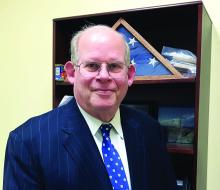As your patients return to your offices for annual exams and sports physicals before the school year starts, everyone will still be processing the challenges, losses, and grief that have marked end of the COVID experience. There will be questions about the safety of vaccines for younger children, whether foreign travel is now a reasonable option, and about how best to help children – school age and teenagers, vulnerable and secure – get their footing socially and academically in the new school year. But dig a little, and you may hear about the silver linings of this past year: children who enjoyed having more time with their parents, parents who were with their families rather than in a car commuting for hours a day or traveling many days a month, grocery deliveries that eased the parent’s workload, adolescents who were able to pull back from overscheduled days, and opportunities for calm conversations that occurred quite naturally during nightly family dinners. Office visits present a dual opportunity to review – what were the psychological costs of COVID and what were positive personal and family adaptations to COVID they may want to continue as the pandemic ends?
Family dinner: Whether because sports practice was suspended, schooling was virtual, or working was at home, many families returned to eating dinner together during the pandemic year. Nightly dinners are a simple but powerful routine allowing all members of a family to reconnect and recharge together, and they are often the first things to disappear in the face of school, sports, and work demands. Research over the past several decades has demonstrated that regular family dinners are associated with better academic performance and higher self-esteem in children. They are also associated with lower rates of depression, substance abuse, eating disorders, and pregnancy in adolescents. Finally, they are associated with better cardiovascular health and lower rates of obesity in both youth and parents. The response is dose dependent, with more regular dinners leading to better outcomes. The food can be simple, what matters most is that the tone is warm, sharing, and curious, not rigid and controlling. Families can be an essential source of support as they help put events and feelings into context, giving them meaning or a framework based on the parents’ past, values, or perspective and on the family’s cultural history. Everyone benefits as family members cope with small and large setbacks, share values, and celebrate one another’s small and large successes. The return of the family dinner table, as often as is reasonable, is one “consequence” of COVID that families should try to preserve.
Consistent virtual family visits: Many families managed the cancellation of holiday visits or supported elderly relatives by connecting with family virtually. For some families, a weekly Zoom call came to function like a weekly family dinner with cousins and grandparents. Not only do these regular video calls protect elderly relatives from loneliness and isolation, but they also made it very easy for extended families to stay connected. Children cannot have too many caring adults around them, and regular calls mean that aunts, uncles, and grandparents can be an enthusiastic audience for their achievements and can offer perspective and guidance when needed. Staying connected without having to manage hours of travel makes it easy to build and maintain these family connections, creating bonds that will be deeper and stronger. Like family dinner, regular virtual gatherings with extended family are unequivocally beneficial for younger and older children and a valuable legacy of COVID.
Lowering the pressure: Many children struggled to stay engaged with virtual school and deeply missed time with friends or in activities like woodshop, soccer, or theater. But many other children had a chance to slow down from a relentless schedule of school, homework, sports, clubs, music lessons, tutoring, and on and on. For these children, many of whom are intensely ambitious and were not willing to voluntarily give up any activities, the forced slowdown of COVID has offered a new perspective on how they might manage their time. The COVID slowdown shone a light on the value of spending enough time in an activity to really learn it, and then choosing which activities to continue to explore and master, while opening time to explore new activities. There was also more time for “senseless fun,” activities that do not lead to achievement or recognition, but are simply fun, e.g., playing video games, splashing in a pool, or surfing the web. This process is critical to healthy development in early and later adolescence, and for many driven teenagers, it has been replaced by a tightly packed schedule of activities they felt they “should” be doing. If these young people hear from you that not only does the COVID pace feel better, but it can also contribute to better health and more meaningful learning and engagement, they may adopt a more thoughtful and intentional approach to managing their most precious asset – their time. Your discussion about prioritizing healthy exercise, virtual visits with friends, hobbies, or even senseless fun might reset the pressure gauge from high to moderate.
Homework help: Many children (and teenagers) found that their parents became an important source of academic support during the year of virtual school. While few parents welcomed the chance to master calculus, it is powerful for parents to know what their children are facing at school and for children to know that their parents are available to help them when they face a challenge. When parents can bear uncertainty, frustration, and even failure alongside their children, they help their children to cultivate tenacity and resilience, whether or not they can help them with a chemistry problem. Some parents will have special skills like knowing a language, being a good writer, or an academic expertise related to their work. But what matters more is working out how to help, not pressure or argue – how to share knowledge in a pleasurable manner. While it is important for children to have access to teachers and tutors with the knowledge and skills to help them learn specific subjects, the positive presence and involvement of their parents can make a valuable contribution to their psychological and educational development.
New ritual: Over the past 16 months, families found many creative ways to pass time together, from evening walks to reading aloud, listening to music, and even mastering new card games. The family evenings of a century earlier, when family members listened together to radio programs, practiced music, or played board games, seemed to have returned. While everyone could still escape to their own space to be on a screen activity alone, solitary computer time was leavened by collective time. Families may have rediscovered joy in shared recreation, exploration, or diversion. This kind of family time is a reward in itself, but it also deepens a child’s connections to everyone in their family. Such time provides lessons in how to turn boredom into something meaningful and even fun. COVID forced families inward and gave them more time. There were many costs including illness, deaths of friends and relatives, loss of time with peers, missed activities and milestones, and an impaired education. However, many of the coerced adaptations had a silver lining or unanticipated benefit. Keeping some of those benefits post COVID could enhance the lives of every member of the family.
Dr. Swick is physician in chief at Ohana, Center for Child and Adolescent Behavioral Health, Community Hospital of the Monterey (Calif.) Peninsula. Dr. Jellinek is professor of psychiatry and pediatrics, Harvard Medical School, Boston. Email them at pdnews@mdedge.com.



